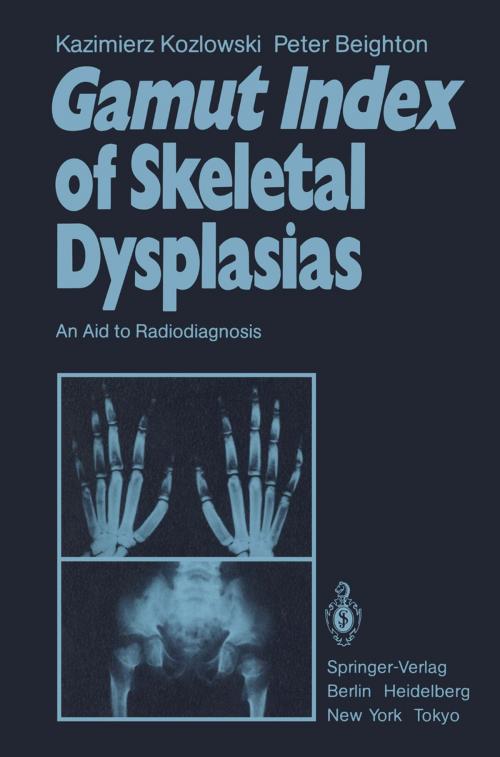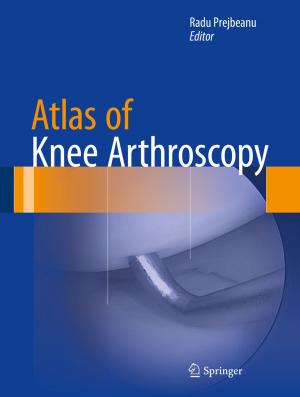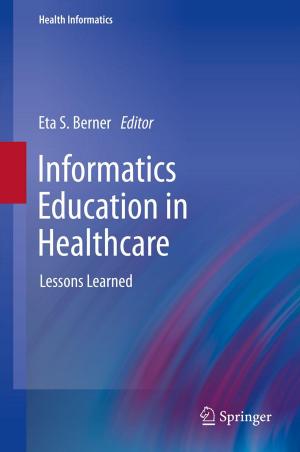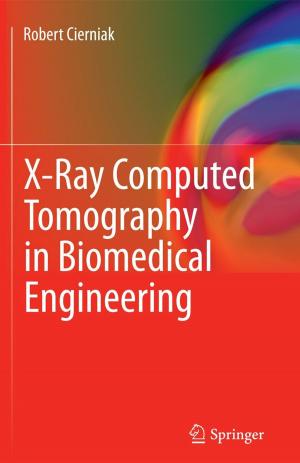Gamut Index of Skeletal Dysplasias
An Aid to Radiodiagnosis
Nonfiction, Health & Well Being, Medical, Medical Science, Biochemistry, Specialties, Orthopedics| Author: | K. Kozlowski, P. Beighton | ISBN: | 9781447133209 |
| Publisher: | Springer London | Publication: | December 6, 2012 |
| Imprint: | Springer | Language: | English |
| Author: | K. Kozlowski, P. Beighton |
| ISBN: | 9781447133209 |
| Publisher: | Springer London |
| Publication: | December 6, 2012 |
| Imprint: | Springer |
| Language: | English |
The skeleton is involved to a significant extent in more than 500 genetic and congenital syndromes and although the majority of these are individually rare, collectively they are not uncommon. Diagnostic precision, which is crucial for accurate prognostica tion and effective management, is frequently dependent upon recognition of radiological stigmata. For this reason the radiologist plays a key role in the appraisal and investigation of persons with disorders of this type. With these points in mind we have written this handbook for use in the radiographic reporting room. We have endeavored to provide the essential information which will facilitate radiodiagnosis and have striven for clarity and accuracy. We believe that our objective will be achieved by means of the 'gamut' format which we have employed. In Section 1 we have addressed the problem of diagnosis of generalized skeletal abnormalities, while Section 2 is based upon an anatomical or regional approach. Lists of conditions are given in order of prevalence or importance. Our gamut has been deliberately simplified and only the most important and easily recognized radiographic stigmata have been taken into account. Pertinent clinical, radiographic, and genetic information for each syndromic entity is provided in Section 3, where the disorders are placed in alphabetical order. This section also contains relevant references which are as up to date as possible.
The skeleton is involved to a significant extent in more than 500 genetic and congenital syndromes and although the majority of these are individually rare, collectively they are not uncommon. Diagnostic precision, which is crucial for accurate prognostica tion and effective management, is frequently dependent upon recognition of radiological stigmata. For this reason the radiologist plays a key role in the appraisal and investigation of persons with disorders of this type. With these points in mind we have written this handbook for use in the radiographic reporting room. We have endeavored to provide the essential information which will facilitate radiodiagnosis and have striven for clarity and accuracy. We believe that our objective will be achieved by means of the 'gamut' format which we have employed. In Section 1 we have addressed the problem of diagnosis of generalized skeletal abnormalities, while Section 2 is based upon an anatomical or regional approach. Lists of conditions are given in order of prevalence or importance. Our gamut has been deliberately simplified and only the most important and easily recognized radiographic stigmata have been taken into account. Pertinent clinical, radiographic, and genetic information for each syndromic entity is provided in Section 3, where the disorders are placed in alphabetical order. This section also contains relevant references which are as up to date as possible.















